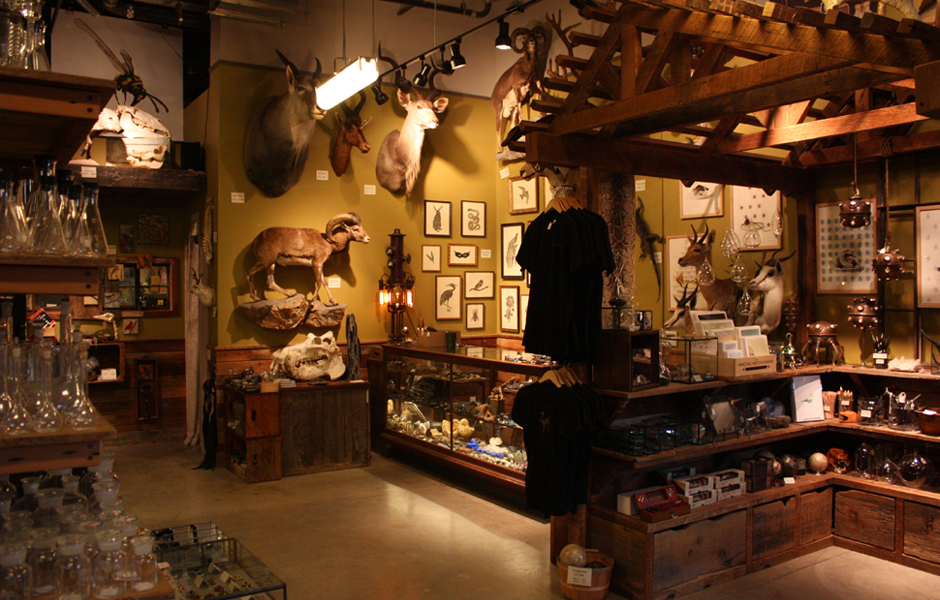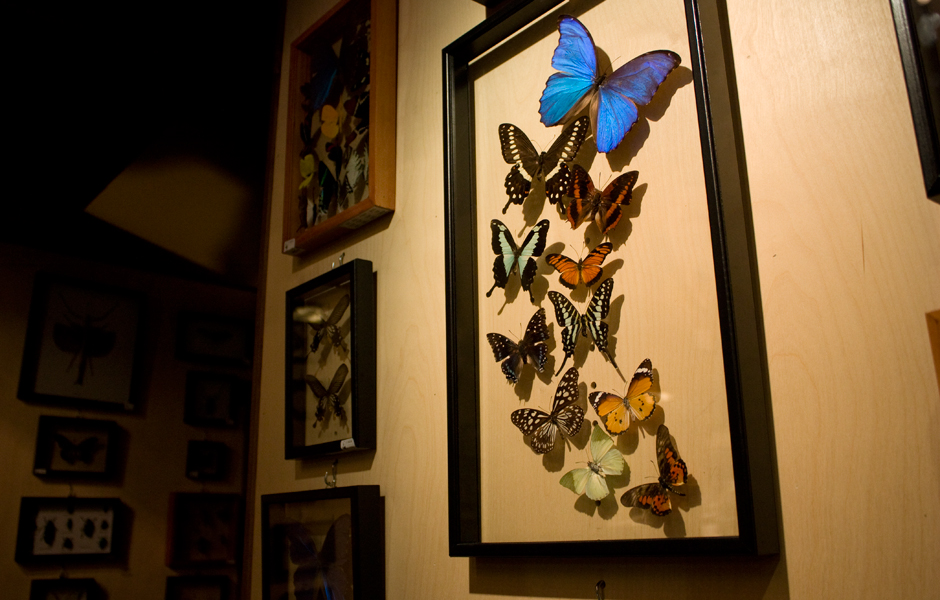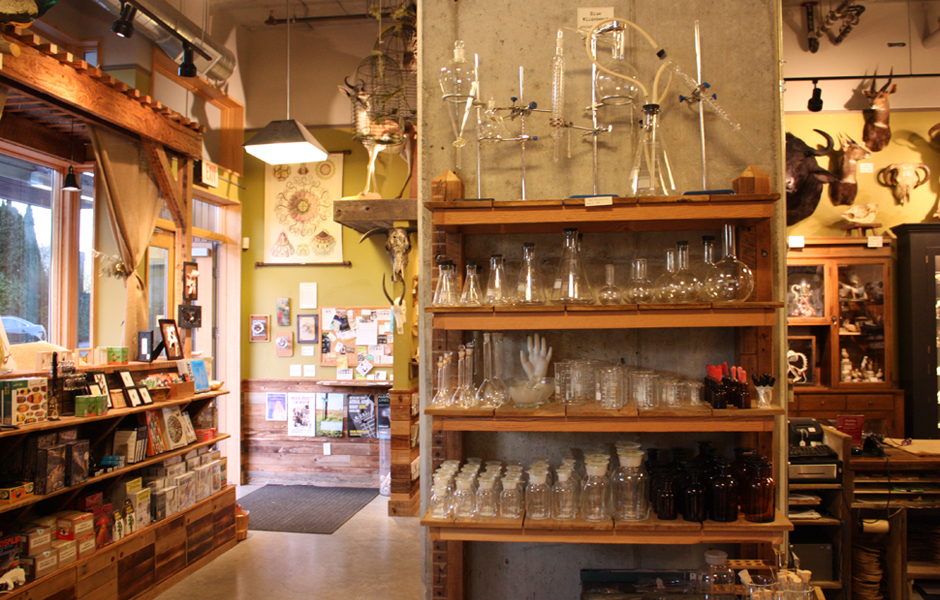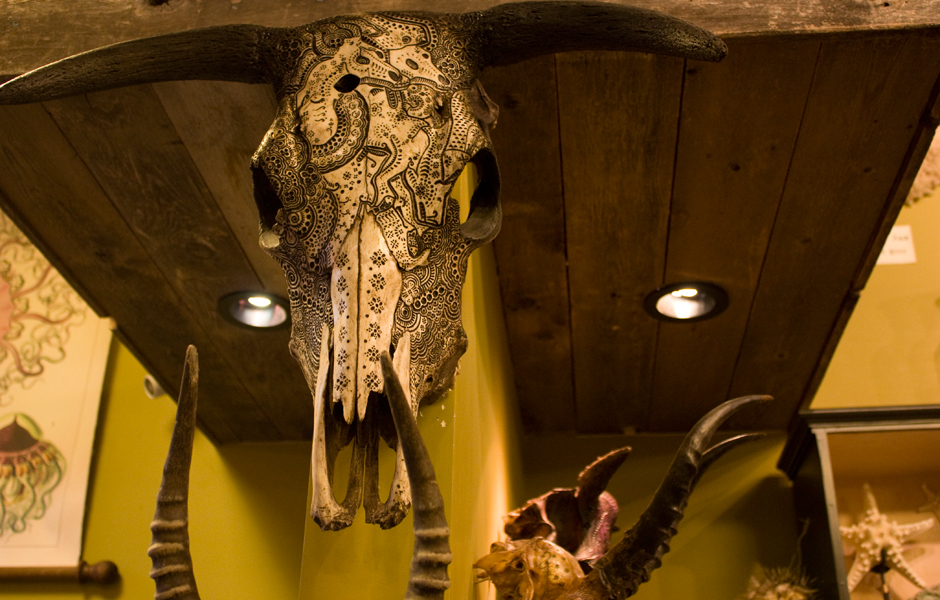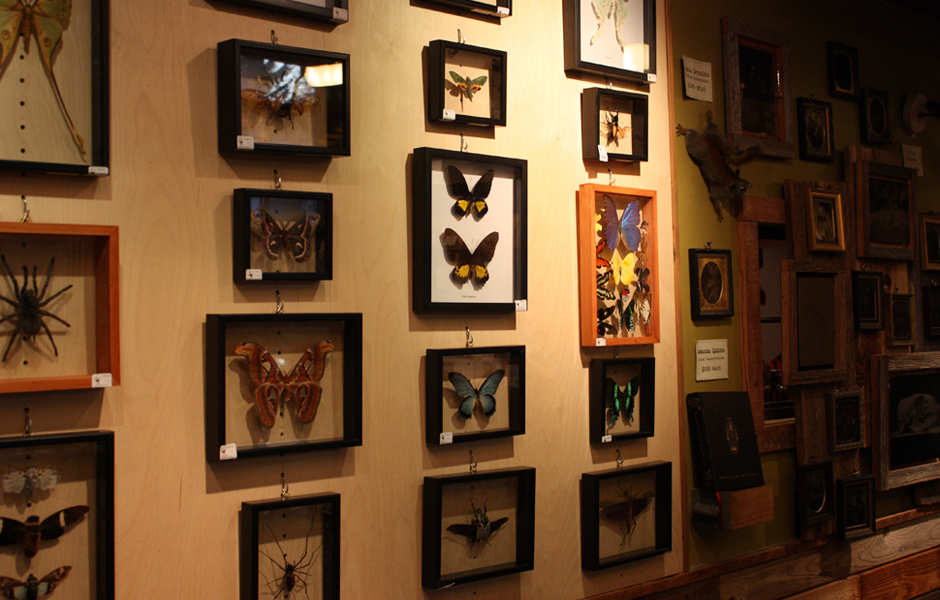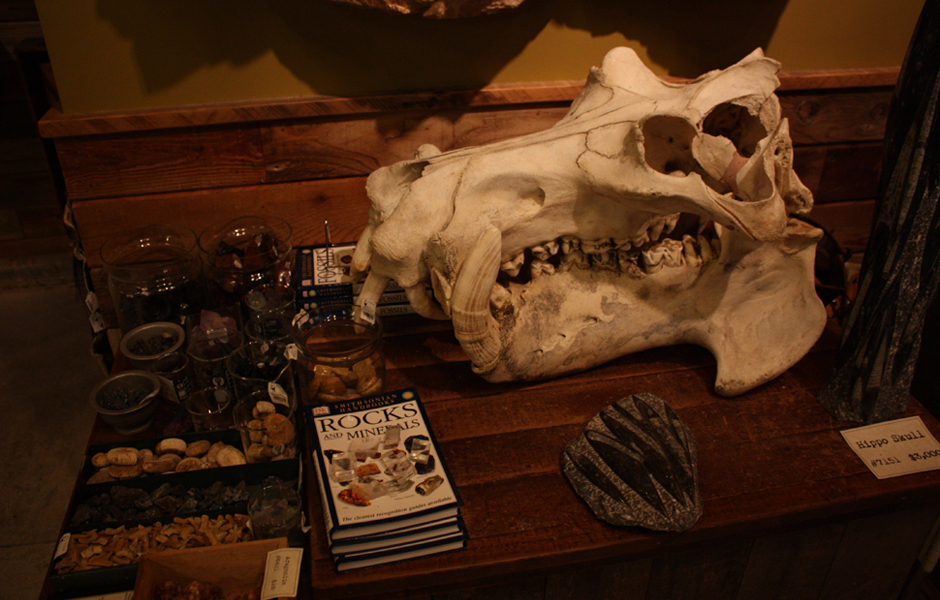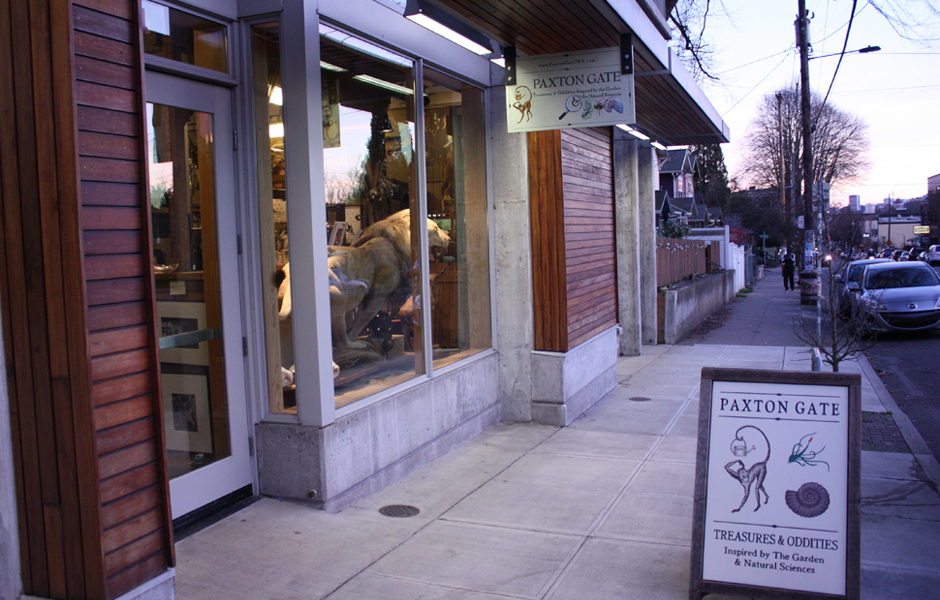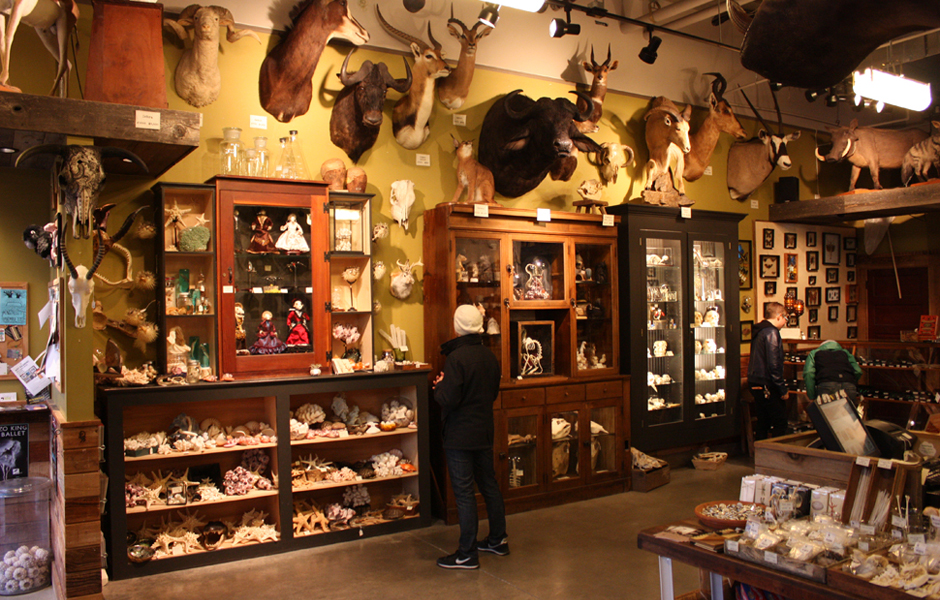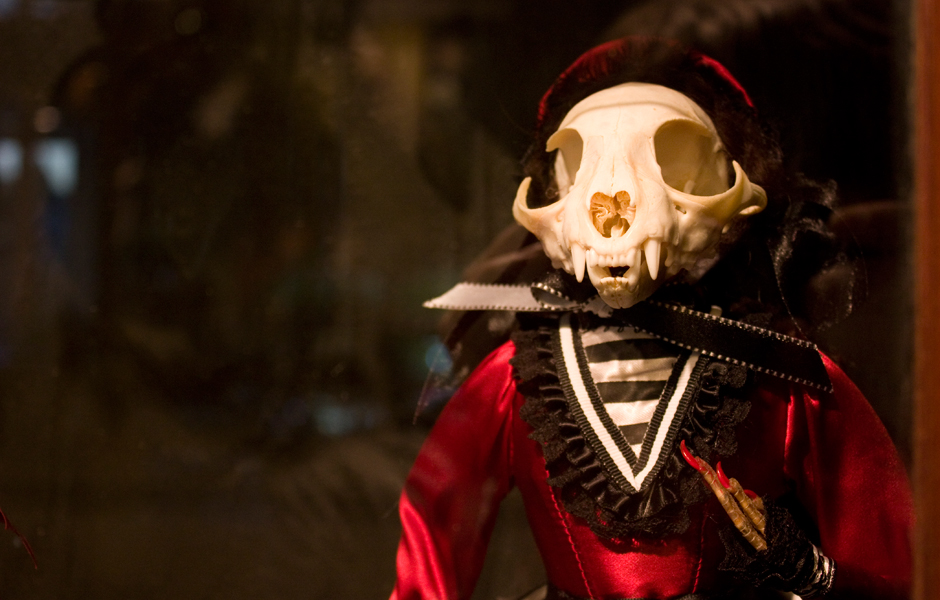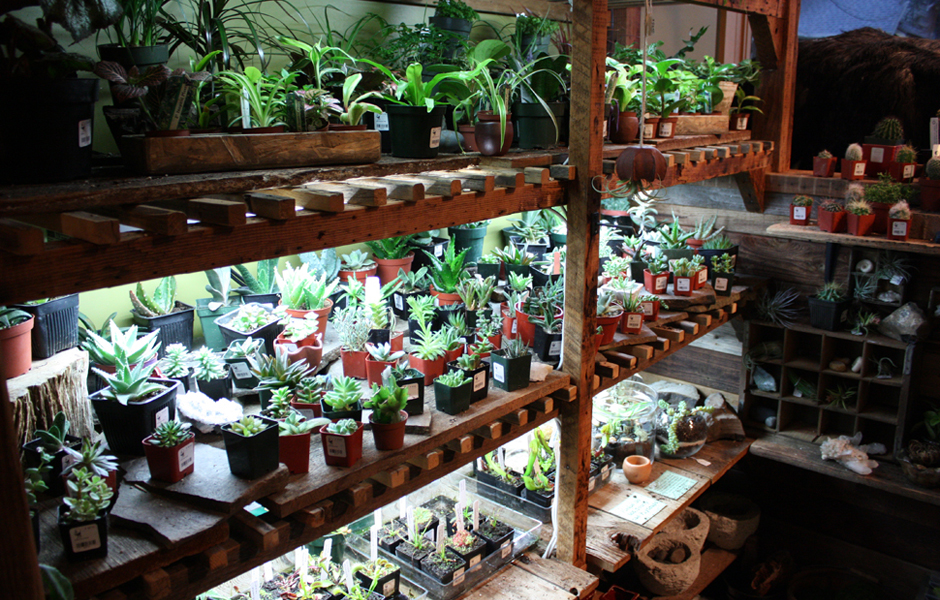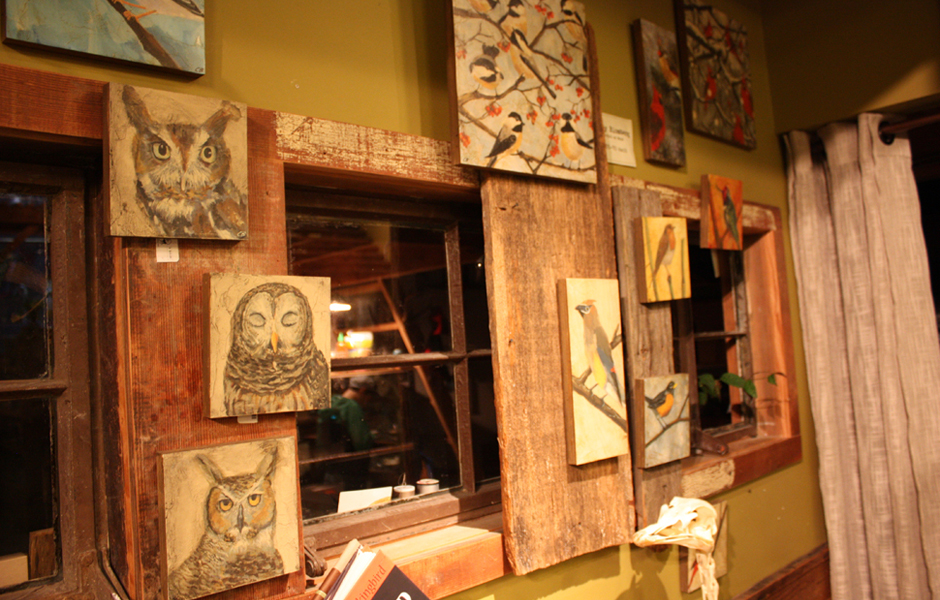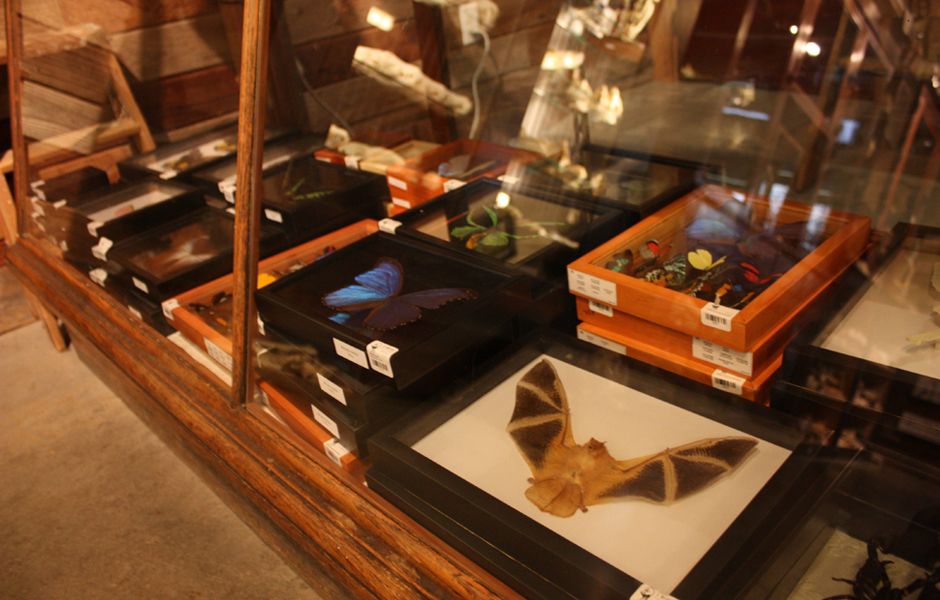To say Paxton Gate isn’t your everyday kind of establishment would be a vast understatement. The shop — conveniently located in Portland’s NE district and abutting a melange of popular locales — serves as a Victorian-themed museum of sorts and homage to the natural world, though, one where the price of admission is completely free. The unique store, one of two on the West Coast, opened in 2010 after owners Susan and Andy Brown licensed the name from a friend in San Francisco, after which they began stocking their shop with wears similar to those lining the shelves of the original location in California. It’s nearly half the size, but the aesthetic is the same.
Related: Micro Guide: Portland, Oregon
Although both locations pride themselves in their exotic collection of taxidermy, they’re more so a place for the odds and ends you won’t find anywhere else. Behemoth hippo skulls and beautiful linoleum prints of zebra and sparrows rest aside buckets full of hardened geodes and Vaugondy globes, all basking under warm lights as bands like Brooklyn’s Crystal Stilts quietly fill the room with a subtle bout of post-punk. A notable collection of framed insects, from sprawling tarantulas to the African Mother-of-Pearl, fill the back of the room, while a host of test tubes, Erlenmeyer flasks, magnifying glasses, and other science equipment add to the vintage wonder of the room. Elsewhere, you can peruse everything from gardening tools to fossil-centric books, not to mention an abundance of archaic sea life and a small shelf of carnivorous plants.
Despite its wide breadth of oddities, though, the owners and employees of Paxton Gate aren’t the keenest on killing. Local vendors and enthusiasts bring many of the pieces directly to the store, whether talking skulls or artisan jewelry, allowing the shop to bask more in natural history than the morbid undertaking often associated with the hunt and subsequent stuffing of animals. Taxidermy, skulls, and skeletons are ethically sourced to ensure the the animal in question died of natural causes or humane euthanization, typically as part of animal care and control programs designed to manage wildlife populations. Insect collections are curated with same sense of caution and regulation.
The shop’s premise might seem a bit eerie to some, sure, but it remains a testament to the natural world around us (for better or worse). Plus, where else can you buy a 400-million-year-old fossil and a ceramic, anatomical heart in Portland proper?
